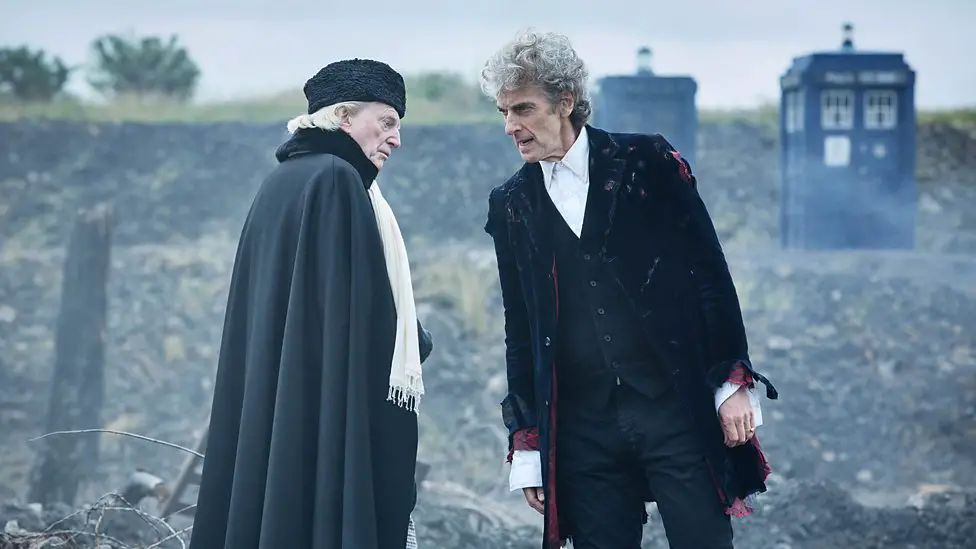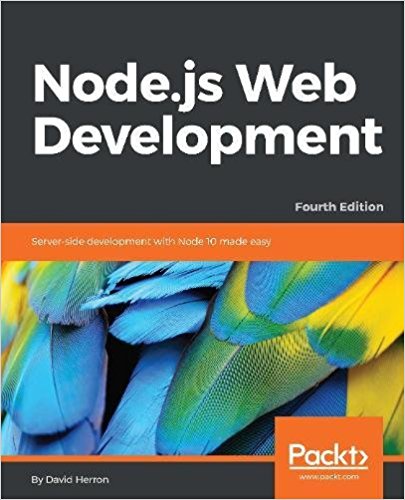; Date: Thu Nov 22 2018
Tags: Doctor Who »»»» Season 11 »»»»
In Twice Upon a Time we had a geek-out-fest of The First Doctor meeting the Twelfth Doctor and lots of fun banter back and forth. It took The First Doctor most of the episode to get his head around what he had become. Instead of being a great Healer, The Doctor had become a creature of wars, fighting big battle after big battle. The Siege of Trenzalore is an example, that went on for 900+ years of all kinds of Enemies of The Doctor fighting with him. But at the end of Twice Upon a Time the First Doctor had his realization, that the Twelfth Doctor wasn't a war monger but instead seeking to heal warfare.

Famously The Doctor rarely picks up any kind of weapon, and is rarely directly fighting enemies. There are exceptions, for example the vile shouting by The Doctor when meeting that lone Dalek in the 9th Doctor story Dalek. Then there was the time The Tenth Doctor borrowed Wilf's gun to do something to stop the Time Lords and Gallifrey from returning. But, generally, no, no guns in the Doctors hands.
On the other hand The Doctor's companions turn into warriors, and many use guns when The Doctor won't. In a way that means The Doctor is ... er... this is a distractionary tangent.
Consider that just before The Twelfth Doctor's regeneration he'd had this conversation with The First Doctor leading to the "Doctor of War" comment. That comment was fresh in his mind, and possibly affected the regeneration into Whittaker's Thirteenth Doctor.
The Thirteenth Doctor has been vocally against picking up guns, and none of the TARDIS crew has been shown with a gun so far. Guns and other weapons have been present, just not being used by any TARDIS crewmember.
Instead the stories have been solved using wit and (of course) The Sonic.
That line in Twice Upon a Time may have been missed - it was passed over so quickly. But it's an idea that is worthy of pondering. How would one go about healing warfare?
Elsewhere in that episode the Glass-Bill-Potts was interrogating The First Doctor and learned that his idea to leave Gallifrey was to explore the role of Good and Evil. He was thinking that Evil should always prevail, so why instead does Good so often prevail?
That question is still inside The Doctor even if The Doctor seems to have forgotten it.
What if these questions are more at the forefront of The Thirteenth Doctor's mind?
One of the many scenes which exemplifies The Doctor comes at the end of The Caves of Androzani. This was the episode where we learned why The Fifth Doctor always had a stalk of celery on his lapel. Celery is a universal cure-all for Time Lords. In any case that episode ends with The Doctor expending his life in order to save Peri, his new companion he had just literally met and barely knew.
In the episode, Peri had gotten bitten by some giant creature and was dying of the poison. The Doctor knew there was a remedy deep in the caves, and even though he also was bitten and dying he used the remedy to cure Peri. As a result he died, then regenerated into Colin Baker's Sixth Doctor.
In other words, The Doctor has a great selflessness. Therefore when The Doctor shows up somewhere there's a great big danger, does s/he pull out a bigger gun than anyone elses gun and solve the situation that way? Nope. Instead The Doctor engineers a resolution and is sometimes able to engender a non-violent conclusion.
What about Season 11?
The Woman Who Fell To Earth: The Doctor engineered a situation where the villain was returned to his home world in an embarrassing fashion, that will almost certainly have him tried for a crime.
The Ghost Monument: In a situation that might have ended up with the two finalists facing off with one dying, instead The Doctor engineered a joint win between the two victors.
Rosa: The Doctor ensured that History occurred as it was in the history books by being part of creating the situation which forced history to occur. The non-interference doctrine should have had The Doctor and TARDIS crew merely as observers not interfering, but if they had not become involved then history would have changed.
Arachnids in the UK: unsure
The Tsuranga Conundrum: The Doctor tricked the Pting into destroying itself, so The Doctor sort of used a weapon?
Demons of the Punjab: The Doctor and crew had to allow one of the characters to be killed and therefore respect the flow of history. Not really an example
Kerblam: The Doctor turned the tables on the villain, causing the bomb-packages to be delivered back to where the Robots were already standing, and therefore causing an explosion that killed the villain.
The Witchfinders: The Doctor ensured the perpetrators were locked back into their prison inside Pendle Hill.
It Takes You Away: The Doctor rescued everyone from the alternate universe, and almost selflessly sacrificed herself in the process. That included substituting herself for this guy she didn't know who needed to be back with his daughter.











